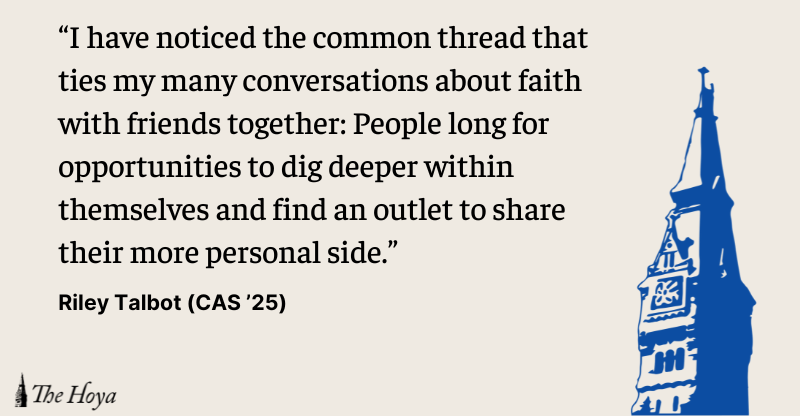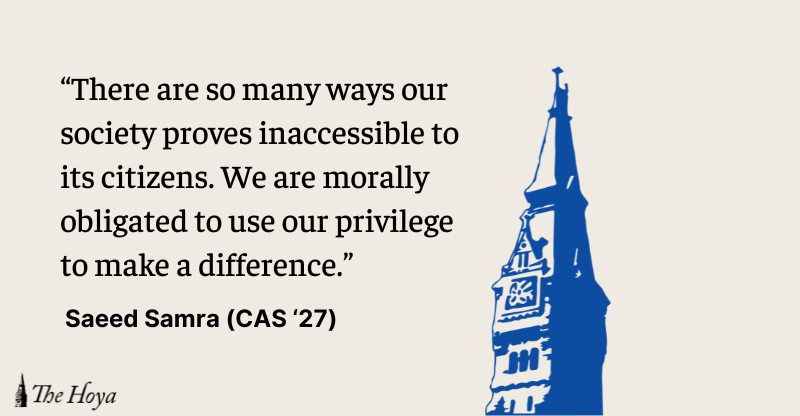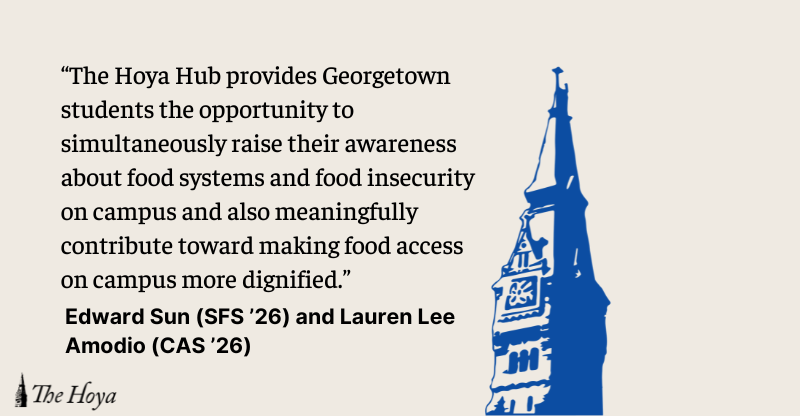One of the supposed hallmarks of our university is its international focus and unwavering dedication to creating capable students who can thrive anywhere.
Yet a look at the languages offered at Georgetown clearly indicates that our university is not as truly committed to the global perspective as it openly boasts. Rather, our language curriculum reveals deeply ingrained Eurocentrism and racism within our academic structures.
When I looked for a language to study at Georgetown, I sought one that I could practice at home and that would help advance my career interests. My family is from East Africa, where they learned a multitude of South Asian and African languages including Gujarati, Hindi, Urdu, Swahili and Punjabi.
These are some of the most widely spoken and most influential languages in the world — yet Georgetown offers only one of them, Swahili.
In fact, Georgetown offers almost no languages from sub-Saharan Africa, South Asia or Southeast Asia. It is appalling that we claim to be an internationally focused institution while refusing to expose students to most of the world’s languages.
Georgetown offers Polish, Greek, Hebrew and Ukrainian. Globally, these languages have about 40 million, 13 million, 5 million and 45 million speakers, respectively, according to Ethnologue, an encyclopedia that focuses on world languages.
Though these languages are undoubtedly important in their respective countries, their speakers pale in comparison to some Asian and African languages.
Hindi has at least 500 million speakers, Punjabi 130 million, Indonesian 200 million, Urdu 160 million, Tagalog 70 million and Vietnamese almost 70 million, according to Ethnologue.
Based on these numbers, the utility of languages like Hindi, Swahili and Indonesian is clearly greater. The U.S. Department of State lists more than 60 languages, including these three, as critical languages, citing the lack of American speakers as a serious problem.
Due to the university’s neglect of these languages, Georgetown students lack access to critical language courses and are incapable of even basic interaction with almost half the world. The failure to offer more Asian and African languages contradicts Georgetown’s global focus.
The notion that the European regions of the languages taught by Georgetown are more vital to modern international affairs as sub-Saharan Africa, South Asia or Southeast Asia is both Eurocentric and unsupported.
According to the World Bank, India has the seventh-largest gross domestic product in the world and Indonesia the 16th. India, South Africa, Nigeria, Indonesia, Pakistan and Vietnam are also all significant global economic players on the rise.
Energy centers, global health battlegrounds, technology hubs, financial markets and trading capitals are located in these regions, yet many Georgetown graduates will lack the language skills to enter these promising areas of growth and innovation.
Similarly, international affairs occur increasingly in these sub-continents: the India-Pakistan relationship, terrorism hotbeds in Somalia, Afghanistan and the Philippines and nuclear weapons proliferation. The lack of relevant language opportunities at Georgetown means that students are not equipped to understand nor operate within these areas — an unfortunate fate for otherwise qualified, purposeful graduates.
It is also worth addressing the demand of languages at Georgetown. Departments, after all, need funding, interest and sufficient registration to survive. However, several of the most obscure European languages had disappointing enrollment numbers from beginning to advanced levels this semester: According to numbers available on MyAccess, Polish had 15 registered undergraduates, Greek had 10, Hebrew had 17 and Ukrainian had one — yes, one.
Evidently, demand is not the reason Georgetown ignores the languages of billions of African and Asian people. The administration has no excuse to disregard the languages of the formerly colonized world besides Eurocentric ideologies that have grown out of racist attitudes toward this region.
To learn Burmese, Hindi, Urdu, Indonesian, Thai or Vietnamese, Georgetown students must go to Johns Hopkins University’s Paul H. Nitze School of Advanced International Studies on Massachusetts Avenue, through which students can receive credit toward degree requirements, though the grades will not count toward our GPAs.
Many of us trace our heritage to the regions for which Georgetown does not teach languages. In its disregard, Georgetown suggests that the languages of our ancestors are lesser, not relevant enough to teach or learn. Supposedly, the languages of my family are not popular enough; the regions I want to focus on are fringe territories that do not deserve such attention.
Eurocentrism and racism are deeply ingrained in our academic structures. Recognize these biases in your experiences: it could be the removal of the historical role of the Ottoman Empire in World War I or the claim that government-sponsored science did not begin until the European Enlightenment. Unless these blatant prejudices are abolished, we are not truly a global institution.
Nabil Kapasi is a sophomore in the School of Foreign Service.




















RP • Oct 28, 2017 at 1:29 pm
It’s not realistic to expect to have instructions for all Asian, African languages and their several dialects to be taught at an American school.
It is a logistical impossibility and not a matter of racism and as far as Eurocentrism is concerned. It’s unfair to blame people who first came to this country for establishing their way of life and thinking.
Sophomore • Oct 27, 2017 at 1:10 am
Yes, but can the university find people to teach them?